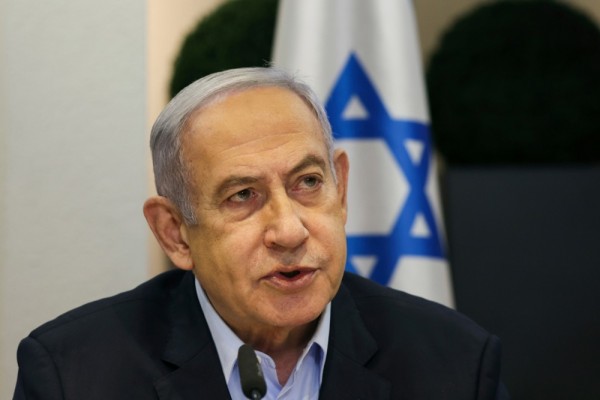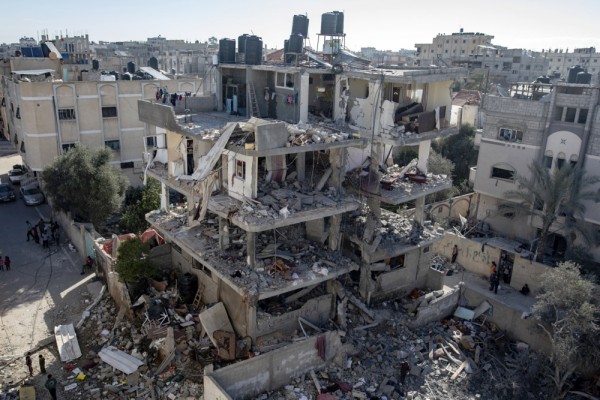On Sunday, TV and newspaper journalists gathered in Tel Aviv to protest against a bill that would drastically increase the penalty for libel, as well as a number of recent events that journalists have said demonstrate government encroachment on media independence.
Knesset Ministers Meir Sheetrit (Kadima) and Yariv Levin (Likud) have proposed a bill that would hike the penalty for civil libel from NIS 50,000 (around 9,900 Euros) to six times that figure, media reports said. The fine is reportedly even higher if the publication refuses to print the full response of the plaintiff, another requirement of the new legislation.
The International Press Institute (IPI) is concerned that the penalty increase, combined with the fact that the burden of proof lies with the defendant, could chill investigative reporting in Israel.
“We urge the Israeli parliament to revise the Defamation Prohibition Law, which we fear would stifle free expression in Israel – where, until now, Israeli journalists have enjoyed a level of press freedom above and beyond that of most of their colleagues in the region,” said IPI Executive Director Alison Bethel McKenzie. “While media houses must be held accountable for their reporting, a penalty increase of this dimension for libel could discourage media from holding public figures accountable, which is their core duty.”
Even under the existing version of the Defamation Prohibition Law, those bringing the lawsuit against a publication do not need to prove that actual damage occurred in order to be awarded damages. Moreover, the burden of proof remains on the journalist and not on the plaintiff, reports said.
Moshe Negbi, an Israel Radio legal commentator and senior lecturer at Hebrew University, and author of a recently published history of press freedom in Israel, strongly criticised the bill in an op-ed published by Haaretz last week.
“Should the new amendment be passed, heaven forbid, there would be even less willingness by journalists, and even more reluctance from their employers, to expose crimes or failures of public figures and thus undertake the risk of being served with libel suits,” Negbi wrote. “Via this legislation, politicians and their friends basically acquire total immunity from criticism and condemnation.”
Knesset Speaker Reuvin Rivlin (Likud) has also criticised the bill.
“This initiative will lead small media sources to close, and will prevent others from playing their part in Israeli democracy,” Rivlin was quoted by The Jerusalem Post as saying. “The result of limiting freedom of the press will harm the government.”
The Sunday protest coincided with a number of other government moves and proposed legislation that Israeli journalists fear could prevent journalists from criticising wrongdoing by the government and public officials, Jerusalem Association of Journalists (JAJ) Chairman Danny Zaken told IPI. (Zaken is also a member of the IPI Israeli Palestinian Journalists Forum).
Debates are ongoing as to whether the government will allow Channel 10 to make late payments of its debt owed to the governmental Second Authority for Television and Radio, which would permit the commercial station to continue its operations. Zaken told IPI that some journalists were concerned that financial decisions by the government about the future of the station may be influenced by the station’s critical investigative reporting.
Channel 10 was recently forced to issue a humiliating apology for a story about an American businessman, which prompted a talk show host and other executives to resign, reports said. Haaretz later reported that senior Channel 10 figures had received intimations that their financial problem could be resolved if they would fire political reporter Raviv Drucker – something that the prime minister’s office subsequently flatly denied.
Journalists also protested against what some see as politically-influenced management decisions at the Israeli Broadcast Authority (IBA), the public broadcaster.
“Prime Minister Binyamin Netanyahu’s appointments have fanned the flames of politicisation after he named Michael Miro as the head of Israel Radio and Yoni Ben- Menachem was elevated to the rank of IBA director-general,” Greer Fay Cashman at the Jerusalem Post reported last week. But she noted that Miro and Ben-Menachem had each “hotly denied that his appointment was politically motivated”.
The International Press Institute (IPI) is concerned that the current law governing appointments to positions of responsibility at the IBA could leave open the possibility of government influence over the public broadcaster.
Currently, oversight of the IBA is in Prime Minister Netanyahu’s portfolio. Under the Broadcasting Authority Law, appointments to the Plenum and Executive Board of the IBA are made by the government and minister overseeing the portfolio, with the input of stakeholders. The director-general of the IBA is then appointed by the minister and members of the plenum.
In a 2007 memorandum on the IBA law, legal specialists at Article 19 concluded: “The duty to consult with certain professional and civil society organisations and the role of the president in confirming candidates for the Plenum are insufficient checks on the government’s very broad discretion”.
Article 19 further noted that “[a]ny governmental role in appointments is capable, if not likely, to translate into a choice for candidates who are favourably disposed to the ruling party or coalition of the day, and consequently to erode the political impartiality of the [public sector broadcaster].”
Meanwhile, Haaretz journalist Uri Blau could be charged for illegal possession of classified documents. Blau received a cache of military documents in 2008 from Anat Kamm, who was working for the Israeli Defence Forces (IDF) at the time. She has been given four years in prison for her role in the leak, but is appealing her sentence. IPI has called on the Israeli authorities not to prosecute Blau, who fulfilled his journalistic responsibilities by reporting on issues that were in the public’s interest. The articles he wrote based on the leaked information were cleared by the military censor before publication.


